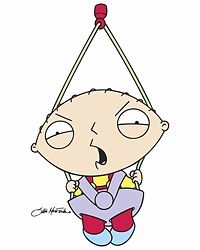The three-month strike by film and television writers is over, and viewers will see something approaching a normal schedule by April.
But questions remain about whether the public will rush to embrace network TV after weeks of stale reruns and reality fare. The Writers Guild of America strike, which began Nov. 5 and quickly shut down TV production, entered its closing days over the weekend. WGA leaders struck a new deal with producers that gives scribes a share of digital revenues. Guild members voted overwhelmingly Tuesday to end the strike, meaning scribes can return to work Wednesday.
That may cheer up fans of "CSI" and "Grey's Anatomy," programs that should return with new episodes by April. ("The Office" and other popular comedies could be back sooner.) This good news, however, is offset by a long-term picture that's not as cheery.
In the last few weeks, new episodes of scripted shows have been scarce, and viewership in the 18-to-49-year-old demographic that advertisers prize has sunk by a stunning 15 percent. Americans clearly found other things to do. They watched more than 10 billion online videos in December, which represented "the single heaviest month for online video consumption" in the history of comScore's Video Metrix, according to a press release from comScore Inc., an Internet market research company.
And a January survey of 1,000 adults by the polling firm MindShare found that 28 percent said they wouldn't return to watching network TV.
Some of that response may just be cranky posturing from viewers, millions of whom will no doubt flock back to Wisteria Lane when "Desperate Housewives" returns. But TV networks and advertisers have to be asking whether a significant chunk of viewers has been lost forever.
"What I'm curious to see is whether there is a lot of pent-up demand (for new episodes) or if the strike has thrown people off their viewing habits," said Rick Kissell, who reports on Nielsen ratings for the trade publication Variety. Though the ratings situation is grim now, until new episodes of scripted TV come back in a month or two, "there is a chance it could get worse," Kissell said.
Things don't look particularly rosy for fall. Networks are cutting costs wherever they can and ordering fewer new programs. Fall rosters on the big networks are likely to be a hodgepodge of reality stalwarts, a few new programs, proven performers and marginal series back for another shot. Absent a game-changing hit like "Lost," no one is expecting the annual dropoff in viewership -- which amounted to about 5 percent when fall 2007 was compared to fall 2006 -- to end soon.
"In 1975 the three broadcast networks accounted for 90 percent of all television viewing. Today, the five networks rarely account for more than 45 percent," said Jeffrey Cole, the director of the Center for the Digital Future, a research and policy institute at the University of Southern California's Annenberg School for Communication.
Despite that decades-long slide and the rise of other forms of entertainment, Cole said that it's hardly time to plan the funerals of the broadcast networks. Though "in another five years, the concept of watching television on someone else's schedule will make no sense, the strike did not really change viewers' preferences. Once again viewers will return to network television although, as always, in somewhat smaller numbers than before."
The warmly received fourth-season premiere of ABC's "Lost," which was watched by more than 16 million people, points to at least some pent-up demand for fresh entertainment. David Poltrack, chief research officer for CBS, pointed out that, "it's not like people found something better than 'CSI' and 'Grey's Anatomy'" to watch during the strike.
No one interviewed for this story expected big drops in viewership for hit shows such as "House," "Desperate Housewives" and "Criminal Minds." TV is still a hit-driven business, and those shows are likely to stay atop the Nielsen ratings charts. But will viewers turn any new shows into hits come fall? Though marginally successful fall shows such as "Chuck," "Pushing Daisies" and "Gossip Girl" are expected to return, the current TV season didn't produce any genuine hits that the networks could build on.
"I don't think this past season was a great season for new shows," said Marc Berman, a senior editor and ratings expert at MediaWeek magazine. "Next year is going to be very haphazard. The bottom line is that this strike is not a positive for the networks."
"The networks could be in decent shape" if they create good new shows and publicize them well, said Kissell. "They won't have as much to focus on and there will be some known commodities returning. But basically, they need the big new hits. Without that, they'll consistently see these declines" in viewership every year.
"I'm beginning to think the days of breakout hits like 'Lost' and 'Desperate Housewives' are over," Berman said.






























No comments:
Post a Comment